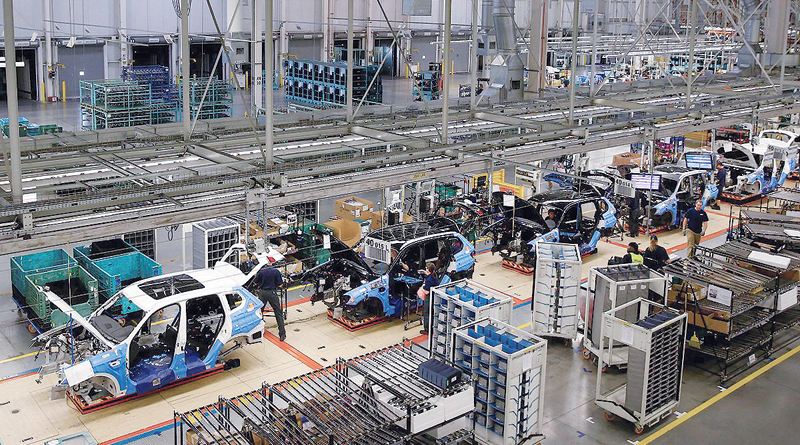

Lesley Wroughton and Howard Schneider -
Years before Donald Trump began promising to bring back good manufacturing jobs by getting tough with US trade partners, such jobs have already been on the rise, largely thanks to foreign companies now cast as villains in Trump’s narrative.
An analysis of federal jobs data shows that out of 656,000 new manufacturing jobs created between 2010 and 2014, two thirds can be attributed to foreign direct investment.
More recent jobs numbers are not yet available, but over $700 billion in foreign capital has poured in over the last two years bringing total foreign investment to $3.7 trillion at the end of 2016, a world record.
Now foreign companies that have spent billions of dollars on US factories and local leaders who host them worry that global supply networks that back those investments will fray if Trump makes good on his pledge to roll back trade liberalisation.
The US president has threatened to tear up North American Free Trade Agreement with Canada and Mexico and slap higher tariffs on nations that run trade surpluses with the United States, such as Germany or China.
The administration is also discussing tighter immigration rules and more security screening of investment.
The tough message helped sway swing northeastern and Midwestern Rust Belt states Trump’s way in the 2016 election, but puts him at odds with companies and local leaders in the south, which has driven the recent growth in manufacturing jobs.
The southern states have voted for Trump, but have also spent decades wooing foreign companies with flexible labour laws, financial incentives and investment in ports, roads and other infrastructure.
The courtship has spawned new auto plants from Kentucky to Georgia, and a new Airbus plant in Mobile, Alabama.
Few places highlight the gap between Trump’s rhetoric and local aspirations better than Spartanburg in South Carolina.
German carmaker BMW has invested here $8 billion in a 1.2 million square foot (11.15 hectares) assembly plant, which has become the largest single exporter of cars by value from the United States.
South Carolina Governor Henry McMaster, a Republican and Trump supporter, credits the German automaker for putting his state on the global investment map. “The presence of this company changed everything in the trajectory of our state,” McMaster said on Monday at an event unveiling BMW’s newest X3 sports utility vehicle.
Its Chief Executive Harald Krueger said the carmaker would invest additional $600 million in Spartanburg over the next four years, adding 1,000 jobs to the 9,000-strong workforce, and spend further $200 million on employee training and education.
But the poster child of South Carolina’s success also doubles as a whipping boy. In January, BMW’s plans to build a plant in Mexico drew Trump’s ire and last month the US president was quoted as saying Germany was “very bad” on trade and selling too many cars in the United States.
And even as the company highlights its contribution to the US economy and the benefits of free trade, it is hedging its bets by preparing for a possible protectionist backlash.
Outside of the spotlight, BMW is retooling factories in South Africa and China to build volume models like the X3 SUV, reducing its dependence on Spartanburg.
“We have a big footprint here, and we are flexible enough,” Oliver Zipse, BMW’s board member responsible for manufacturing, said.
“We will build the X3 not only in Spartanburg, we will split it into South Africa and then to China, so we will have some flexibility to produce cars somewhere else,” he said. “If something happens
at the political level — which we don’t know yet — we are able to have a flexible response.”
The Trump administration has said it welcomes foreign investment and Secretary of Commerce Wilbur Ross, who spoke at an opening of a new Samsung Electronics plant in South Carolina, said such projects showed that “America is becoming an even stronger destination for global businesses looking to grow.”
— Reuters
Oman Observer is now on the WhatsApp channel. Click here



